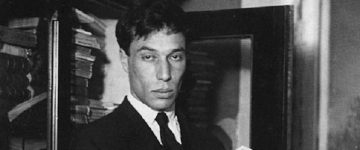Randy Boyagoda in First Look:
 In the opening lines of Cold Warriors, Duncan White notes that “between February and May 1955, a group covertly funded by the Central Intelligence Agency launched a secret weapon into Communist territory”: balloons carrying copies of George Orwell’s Animal Farm. This was perhaps the most prominent title among “tens of millions of books, leaflets, pamphlets, posters” that were distributed by hundreds of thousands of weather balloons. “In response,” White continues, “the authorities in Czechoslovakia, Hungary, and Poland warned its citizens that possession of this material was illegal and even sought to shoot down the balloons with fighter planes and antiaircraft guns.”
In the opening lines of Cold Warriors, Duncan White notes that “between February and May 1955, a group covertly funded by the Central Intelligence Agency launched a secret weapon into Communist territory”: balloons carrying copies of George Orwell’s Animal Farm. This was perhaps the most prominent title among “tens of millions of books, leaflets, pamphlets, posters” that were distributed by hundreds of thousands of weather balloons. “In response,” White continues, “the authorities in Czechoslovakia, Hungary, and Poland warned its citizens that possession of this material was illegal and even sought to shoot down the balloons with fighter planes and antiaircraft guns.”
Nearly seven hundred pages later, White states the obvious:
Literature is no longer conceived of as a weapon to be deployed in cultural warfare: it is hard to imagine the publication of a novel precipitating a geopolitical crisis in the manner of Dr. Zhivago or The Gulag Archipelago. . . . The specific circumstances of the Cold War will never be repeated, and the idea of literature being deployed by governments on a vast scale is no longer credible.
Of course, governments still worry about writers and writing—China regularly restricts the travel of dissident authors; it goes after booksellers who sell books that criticize the central government; and it bullies foreign embassies, usually Scandinavian, that raise concerns. PEN International regularly documents the situation of imprisoned, suppressed, and disappeared writers living under repressive regimes around the world.
More here.
